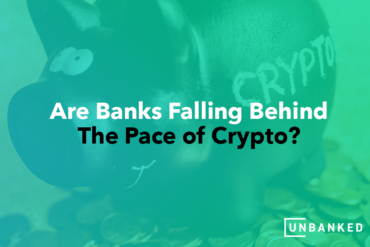The crypto market is expanding day by day. The number of people interested in cryptocurrencies is increasing exponentially. Cryptocurrencies are decentralized in nature, making transactions cheaper, faster, and much more efficient. Given their accessible nature, cryptocurrencies have the potential to challenge fiat currencies and centralized banks. Central banks feel threatened by it because they cannot track its transactions. Cryptocurrencies allow users to transfer money with low or zero transfer fees, unlike banks that charge a high amount for cross-border transfers. Banks have monopolized the financial industry for far too long, and many people think they cannot be trusted. They have a complex, archaic system that is difficult for a layperson to navigate. They see cryptocurrencies as viable alternatives to the archaic banking system. Crypto also has the edge over traditional banks because of its privacy to its customers. It does not require users’ personal information like social security number, address card, etc., which traditional banking and credit card companies usually need. This does not mean that banks will go useless – they just need to adopt the new changes of the financial world and keep up with the modernization of finance. And in fact, several mainstream banks in the US have already started to incorporate cryptocurrencies in one way or another. Until recently, most central authorities have seen cryptocurrencies only as a highly volatile speculative asset, but now they are looking to change their outlook to remain competitive and relevant in today’s world. Although they have been relatively slow in embracing this financial innovation, several banks are now entering into partnerships with crypto firms to provide crypto-related services to their new customers.
What Do The Legislators Think?
The entry of cryptocurrencies and decentralized finance is a cause of concern for US legislators. It has the potential to disrupt the centralized financial services industry. Regulators are concerned that the banking industry will not catch up with rapid advancements in the crypto industry. Besides that, there are too many blind spots in the crypto markets that make users vulnerable. Senator Elizabeth even remarked that cryptocurrencies have become more like a new shadow bank. She implied that cryptocurrencies provide banking services to new customers without any customer protection and stability that the traditional banking framework has always offered. Legislators are concerned that customers do not fully understand the risk and volatility of cryptocurrencies, and they are just hopping on the crypto bandwagon. Since crypto accounts are not federally insured, customers might lose their money if the market collapses. The global increase in the number of crypto scams and frauds is further alleviating their mistrust of cryptocurrencies. For example, since 2019, Americans alone have lost $80 million to such scams, a 1000% increase in the number of frauds since fall 2019. PolyNetwork, a crypto platform, lost around $600 million of customers’ assets due to a severe hack. Although most of the money was returned later after the company cut a deal with the hacker, this vulnerable situation is not helping build crypto’s popularity.
In the last couple of months, the Office of Comptroller of Currency, the Federal Reserve, and the Federal Insurance Corporation have been making a joint effort to form an “interagency crypto sprint” team to create a unified framework for cryptocurrency. They are looking for collaborative efforts to curb the dangers of technology-driven advancements these days. They are examining the ways how crypto and fintech firms can become compliant with the banking charters. They want to develop a unified, comprehensive definition of crypto to bring it under the legal framework.
The Securities and Exchanges Commission is also making efforts to investigate digital currencies by recruiting several academics and experts to help track the changing environment of the crypto market. Although passing such comprehensive legislation may take some time, the legislators may pass interim measures to regulate the crypto industry. The new SEC Chief Gary Gensler has made clear on several occasions that he wants to regulate the largely unregulated crypto industry.
The challenge to regulate the latest crypto finance firms in the world of DeFi is even more significant. These DeFi platforms are automated markets that facilitate transactions without the need for intermediaries. They want to remove the third parties and bring together buyers and sellers to blockchain technology. They don’t require users to submit their identity information; instead, they are represented by a unique combination of letters and numbers. Most of such platforms don’t even know the names of their customers. While they argue that they want to create a peer-to-peer community of users who can interact directly with each other, making it even difficult for legislators to regulate such DeFi platforms.
What Are Banks Doing?
Several major banks have started to embrace cryptocurrency instead of fighting it. Goldman and Sachs showed interest in cryptocurrency trading and investment when it appointed Mathew McDermott as the Head of Digital Assets. Even JPMorgan Chase introduced its cryptocurrency called the JPM Coin, enabling fund transfers and faster transactions between customers. Even the European Central Bank showed its interest in exploring the possibility for a digital euro to keep up with the changes in financial technology. The US government also wants to issue a digital dollar. These changes signal that cryptocurrencies are making their way into the mainstream. It is hard for banks and major financial institutions to ignore the enormous potential of cryptocurrencies and DeFi markets. Such partnerships come as new opportunities for banks to garner customer interest and trust. The partnership between banks and crypto firms is beneficial to banks and the crypto industry at large. The entry of major financial players will give the crypto industry greater legitimization and even move towards mass adoption. To know more about how you can invest in cryptocurrencies and enter the crypto market, contact us today!





